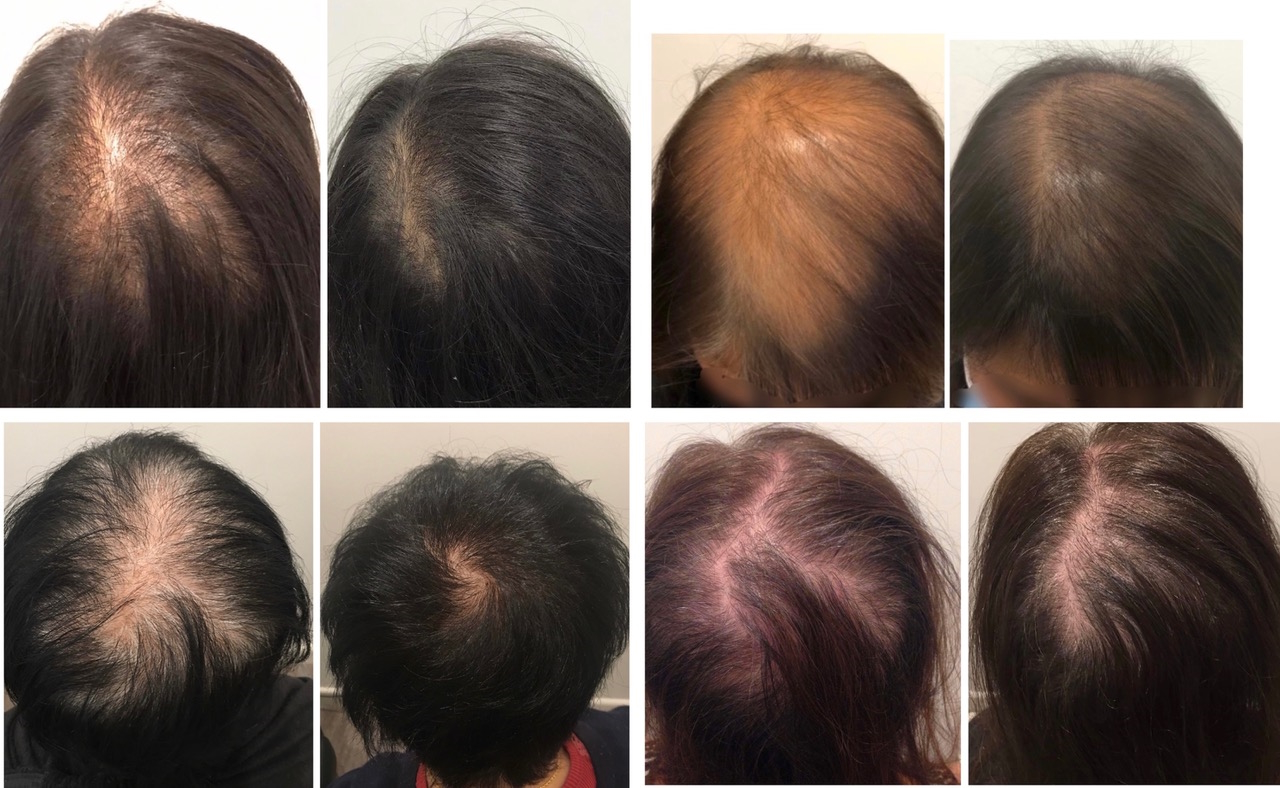Understanding Hair Loss in Women: Causes and Solutions for Menopause, Stress, and Post-Pregnancy

Hair loss is a common problem that many women face at some point in their lives. Whether it's due to menopause, stress, or pregnancy, loss of hair can be a frustrating and emotional experience. Understanding the causes of hair loss in women is the first step to finding a solution. In this article, we will explore the various reasons why women experience hair loss and provide practical solutions to help combat this issue. From hormonal changes to vitamin deficiencies, we will cover everything you need to know about hair loss in women. So, whether you're struggling with hair loss yourself or just want to learn more about the topic, keep reading to discover the causes and solutions.
Understanding the Hair Growth Cycle
Before we dive into the causes and solutions for hair loss in women, it's important to understand the hair growth cycle. The hair growth cycle consists of three stages: anagen, catagen, and telogen. The anagen phase is the active growth phase, where the hair follicle is actively producing hair. This phase can last anywhere from two to seven years, depending on genetics and other factors. The catagen phase is a transitional phase that lasts about two weeks. During this phase, the hair follicle shrinks and detaches from the blood supply. Finally, the telogen phase is the resting phase, where the hair follicle is inactive and the hair is no longer growing. This phase lasts about three months, after which the hair falls out and the cycle starts again.
It's normal to lose about 50 to 100 hairs per day, as hair follicles go through the hair growth cycle. However, if you're experiencing excessive hair loss, it may be a sign of an underlying issue.
Causes of Hair Loss in Women
There are many reasons why women experience hair loss, but some of the most common causes are menopause, stress, and post-pregnancy.
Menopause
Menopause is a natural transition that occurs in women as they age, usually between the ages of 45 and 55. During menopause, the body experiences a decrease in estrogen production, which can lead to hair loss during the menopause. This is because estrogen helps to promote hair growth and maintain the hair follicles. Without enough estrogen, the hair follicles can become weak and brittle, leading to hair loss.
Stress
Stress can also be a major contributor to hair loss in women. When the body is under stress, it produces cortisol, a hormone that can disrupt the hair growth cycle. Too much cortisol can push hair follicles into the telogen phase, leading to excessive hair shedding. Stress can also lead to inflammation, which can damage hair follicles and lead to stress induced hairloss.
Pregnancy and Post-Pregnancy
Many women experience hairloss during pregnancy or post pregnancy, a condition known as postpartum hair loss. During pregnancy, the body experiences an increase in estrogen levels, which can promote hair growth and prevent hair loss. However, after giving birth, estrogen levels drop rapidly, which can cause hair follicles to enter the telogen phase and lead to hair shedding.
Hormonal Changes and Hair Loss
Hormonal changes are a common cause of hair loss in women. In addition to menopause, other hormonal imbalances can lead to hair loss. For example, conditions such as polycystic ovary syndrome (PCOS) and thyroid disorders can disrupt the normal hormone balance in the body and lead to hair loss.
Best Hair Loss Treatments for Women
There are several hair loss treatments that may be effective. Here are some of the best hair loss treatments for women:
Minoxidil: Minoxidil is a topical medication that's applied to the scalp to promote hair growth. It's available over-the-counter and has been shown to be effective in treating hair loss in women.
PRP therapy: PRP therapy stands for Platelet-Rich Plasma therapy, which is a medical treatment that uses a patient's own blood to promote healing and regeneration in damaged tissues. During the procedure, a small amount of blood is taken from the patient and processed to extract the platelet-rich plasma, which contains growth factors that can stimulate healing and tissue regeneration. The concentrated plasma is then injected back into the patient's body at the site of hairloss.
Hair transplant: Hair transplant surgery involves taking hair from one area of the scalp and transplanting it to the area where hair loss has occurred. This can be an effective treatment for women with significant hair loss.
Hair loss can be a frustrating and emotional experience, but there are solutions available. Understanding the causes of hair loss in women is the first step to finding a solution. Whether it's due to menopause, stress, or post-pregnancy, there are practical steps you can take to minimise hair shedding and promote hair growth. If you're experiencing excessive hair loss, it's important to talk to the team at Hair Skin and Science about the best treatment options for you. With the right care and treatment, you can regain your confidence and love your hair again.










